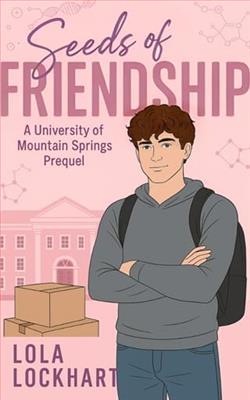Page 1 of A Shimla Affair
Prologue
Irealized quite early on in life that acting beyond what was expected of me, above the role of the good woman I was supposed to play, could be the only difference between a life of servility and a life of truth. By servility, I do not mean to a husband, who as Lord and saviour, would help me fulfil my true destiny by giving me the chance to be a devoted wife and mother, as the scriptures say he would. I mean the servility that every man or woman owes to their birth and their circumstances, the servility that defines our boundaries and decides our fate. The only way to overcome this servility is to chase the truth, and the path to truth is laced with freedom.
One can only know freedom as one knows fresh air—the value of it only grasped when it’s gone. Conversely, those who never had it would live with the feeling of something missing, but would find it hard to quite put a finger on what. A woman would find it hard to imagine how she would live like a man, as a king of the world.
I must have been barely five when our father had taken us on a short trip to Matheran to marvel at the wonders of the train. We went into the forest and I was thrilled to be surrounded by my sisters and our father, all of them standing over me like branches of a shady tree. Suddenly, I had noticed a blue parakeet with her little chicks, fluttering around a branch, and I tugged at my father’s arm, willing him to enjoy the wondrous sight. A smile appeared on his face on seeing the parakeet family, and he stopped in his tracks to gaze at it. I felt unbearably happy andsmug at having found this parakeet, the sight of which fascinated my father so much.
‘Look at them,’ he had pointed, ‘see how they take care of each other? It is their duty. All the birds and animals in this forest, each one is doing its duty. That’s what life is about … just like them, you must also do your duty, girls, when the time comes for it.’
‘What is duty?’ I had asked him. I wanted to fulfil it to the best of my abilities.
‘Doing what you are supposed to do. And each creature in the world must do their own duty.’
I made a mental note and looked forward to the time when I could show my father that I was indeed doing my duty. When he made to leave, I told him I wanted to take along the parakeet so it could live with me. He refused on all accounts, no matter how much I cried or fussed, making it clear that the parakeet must be allowed to remain free. I told him that by that rationale, he should also set me free. He had tapped my head and smiled: ‘Do your duty, and you will be free.’
For as long as I can remember, I wanted to win this freedom.
When my sisters and I originally set out to win freedom, we were fuelled by our enthusiasm in what we thought was our duty, our loyalty that told us to fight for all that we hold dear and our deep belief that we held in our hands the strings that could change the world. We believed that we had earned the right to determine the fates of others, forgetting in our innocence that only God had that right. We believed that three women could have the power to change history, the very course of Indian independence.
All so that one day we could say—we know what it is to be free.
ACT ONE
Royal Hotel Shimla
1
If I attempt to go back to the beginning of it all, to understand how the tide of our undoing swept us along headfirst into the calamitous sea, perhaps I would arrive at our father’s love for stories. He loved telling stories, and maybe that’s also what made him such a good trader, besides, of course, the fact that he traded in opium. He had a way of talking that would turn the mundane into the dramatic, that could make one forget the immediate world and move the person to tears—‘baaton mein ras ghol dete hai,Mistryji!’ It was a compliment we often heard about him—that he could sway people with his words.
He often used to say that stories are between you and I, making them seem like a personal, special secret, relating them with penchant and charm. He knew when to raise his tone with a smattering of exclamations, and when to pause and build suspense. He knew how to hold attention, and how to laugh and diffuse it. Even as a child, I realized this magnetic power he had. More than anything else, he knew human nature—what made people smile and cry.
Every week, our relatives would gather over salli boti and steaming dal, and our father, the all-important storyteller,would regale us with stories of the follies of great kings, the loyalties of loving friends, and the treacheries of seemingly-innocent partners. Stories about statecraft and politics, cleverness and retributions, love and death. Eventually, he would ask the guests to participate by sharing tales fictional and real, tragic and comic, gloomy and hopeful.
It was the highlight of our time spent with him, as our father had many important businesses to attend to other than just take care of three little girls. Our charge was passed among ayahs, under the watchful eye of an aunt here or there. While most times he remained a distant, strict and awe-inspiring figure, the stories abolished hierarchies and treated all of us equally in their wonderful and mysterious world.
My favourite story, the one I remembered as a hymn late into the hours of troubling nights, was a story from the Jataka tales, of the little quail Latukika who laid her eggs on the feeding ground of elephants. My sisters—Noor, Afreen—and I would be spellbound as we imagined Latukika’s tiny eggs in the path of hundreds of bumbling elephants. One elephant, a form of the Bodhisatta, protected Latukika and her eggs from the parade of elephants but, before leaving, he warned Latukika of one wild elephant whom he could not control.
The rogue elephant came and destroyed Latukika’s eggs, although she begged him to show mercy. With shattered dreams, Latukika flew away, weighed down by a life that would never be the same again. Yet, a fire of vengeance burnt in Latukika’s belly, and she vowed to avenge her hatchlings. Over time, she made friends with a crow, a fly and a frog, and convinced them to join her in her mission to destroy the wild elephant. After days of planning, the crow pecked at the elephant’s eyeballs until they oozed blood. The fly then entered and laid eggs inside his eye sockets. When the eggs hatched into maggots, the elephant was in a pain so fierce that the croaking frog, promising a refreshingdunk in a pond of water, was able to mislead the blind elephant off the edge of a cliff. And so, Latukika had her revenge.
‘It matters not who has the most strength,’ father would say, ‘it matters how you use that strength, what friends you have and what cause you fight for.’ In the difficult times of life, I remembered Latukika and her courage in the face of horrifying odds, and over time, my sisters and I became Latukika and her friends, sticking together in the face of all that had happened to us.
When our father died, our eldest sister, Noor, was compelled to save Afreen and I from our relatives, lest they relegate us to a torrid, shameful future. Noor had bravely borne two huge tragedies of life—first when her husband died of tuberculosis and then when we lost our father. She had been forced to grow up more each time and hold life tighter in her hands, and yet, she fought her husband’s family to be with us. She left behind her world in Lahore to take her younger sisters to our inheritance: Royal Hotel Shimla.
In a land of heat and dust, Royal Hotel Shimla was an oasis of dreams perched on top of Sunset Hill in Shimla. When our father’s opium business stalled, he put his energies into developing the four-storeyed stone establishment. But he did not want to offer just another inn for passersby. He wanted Royal Hotel Shimla to be a stunning cultural centre, a place that hosted soirées for all the beautiful and distinguished people who set foot in Shimla.
The opium was going to be his key to make Royal Hotel Shimla a success, the gateway to his entry in the world of the British and an opportunity for consorting with the Rajahs and Maharajahs. Word spread that our father, Jamshedji Mistry, offered the best opium in all of Hindustan in his hotel. It attracted the influential Nawabs, the dainty princesses, the anglicized civil servants. Our father made gifts of this opiumto high-ranking officials, and soon the place was teeming with English officers out to enjoy the summer season. Within months, the who’s who were at Royal Hotel Shimla: the Maharaja of Kapurthala, the Maharani of Cooch Behar, Lords and Marquesses, Governors of various Presidencies, fallen-from-glory Sultans, French explorers and Swiss diplomats—all eager to meet with the cream of society.
Every summer, the town came alive with balls, parties, picnics, country fairs and the revelries of the British as well as India’s rich. It was the perfect time for single women, accompanied by their mothers, on the lookout for an appropriate husband. Gossip and scandal flowed as freely as champagne and wine, with dances to aid the meeting of eligible single adults.
In the hotel, I often pretended to be someone else; a desperate Maharani out to negotiate with the evil White men to save her kingdom, an out-of-favour Nawab giving in to intoxicants and falling in love with a courtesan, a little girl locked in the hotel alone to fight the ghosts of its past owners. The fabulous lives of our guests took my imagination to far-off worlds. Surrounded by these important people, I was keen to be someone more exciting and live their life, even if only in fantasy.
While Noor took over the complicated tasks of running the hotel, I was trained in English and taught to welcome the guests and arrange for their needs. I was on call to bring them their towels, show them to the ballroom, make sure the tea arrived and ensure that every room had hot water for their baths. I also kept the fires burning. Afreen, on the other hand, was placed in the kitchen, to oversee the cooking. With her loud mouth, keen sense of justice and resentment, which prevented her from being practical, the kitchen was the only place she could remain out of trouble.
There was always work to do, always things to take care of and always someone to help. I was happy being there, it took our minds away from the past. Yet, as I grew up, the hotel’s walls, elaborate though they might have been, weren’t enough, and I started getting restless.
I was young and beautiful, I knew as much, but it seemed as though my life had come to a standstill within the four walls of this hotel. Chained to our inheritance, I longed for the world outside that seemed out of reach. In my dreams, I dared to venture far and away to America, to a life of Hollywood glamour, while I was resigned to await the marriage fate had in store for me.
I knew that the hotel was our lifeline. Outside of these four walls, we would be lost, and our self-made house of graces would crumble. I helped my sisters in the running of this place to maintain our semblance of respectability—so that good Parsi men could be found for us, so we may dedicate the rest of our lives to them and give them beautiful, well-behaved children who would go on to glorify their Parsi name.















